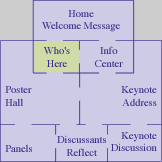|
abstract:
|
This is a five-year project to improve science education for all K-5 teachers in 129 elementary schools in the Metro Nashville Area, in 4 school districts. This will be accomplished by providing intensive summer institutes and continuing school year collaborative sessions. The Districts and Tennessee State University (TSU)'s partnership will initiate and sustain reform by creating site-based and cross-district learning communities. This project represents an innovative model based on partnerships and demonstrates collaboration with public and private stakeholders including parents, the Chamber of Commerce, business and industry, and other members of the learning community.
Metro Nashville Schools makes up a large urban district with a population consisting of 44.6 percent minority and 51.8 percent economically disadvantaged. The school faculties need professional development to effectively serve these diverse students and community needs in the four project shcool districts. Thus, this project recognizes that teachers are at different levels of professional development and offers a variety of teacher enhancement methods and opportunities. All methods reflect a constructivist approach and are inquiry-based with an emphasis on these critical areas: 1) leadership development for teachers and principals, 2) moving towards and beyond the mechanical use of curriculum, 3) new teacher support, and 4) diversity and equity.
There are eight Teachers in Residence who assume the role of full time project staff. They conduct professional development workshops for teachers in a cluster of schools (each cluster serves 8-12 schools) and provide support to 200 additional teachers functioning as School Facilitators. School Facilitators are selected based upon leadership potential and receive additional enhancement. They are available on a day to day basis for peer support. There are teams of up to three School Facilitators at each school. Principals also play an important role in the project and each receive 50 hours of professional training. The intent is that the principals will become the instructional leaders of their schools. A pilot approach to school-wide reform is being developed with several schools.
The curriculum is modular based and includes NSF-supported Science and Technology for Children (STC), EDC-Insights and FOSS units. All the science disciplines are included in the curriculum. A Teacher Enhancement and Materials Management (TEMM) Center has developed at TSU. The TEMM Center provides professional development and maintains, refurbishes and distributes the kits to the classrooms. Support and enhancement of the content in the curriculum is provided when scientists work with teachers to develop skills in inquiry.
|


